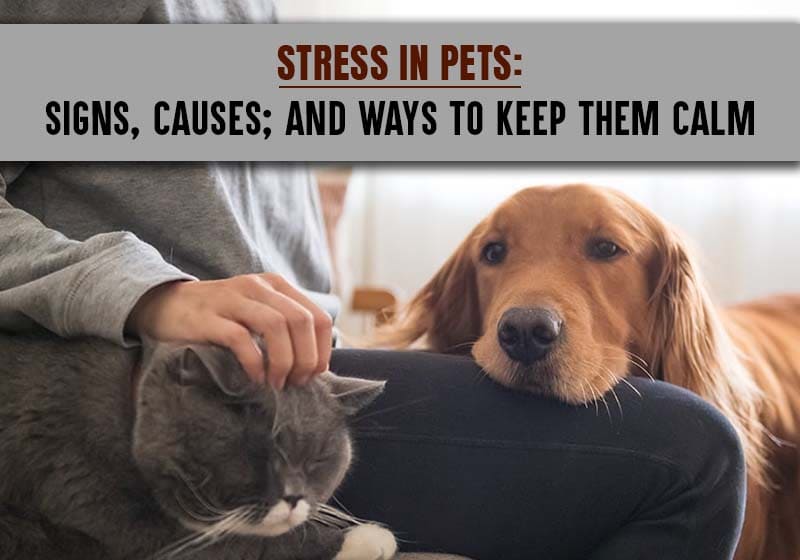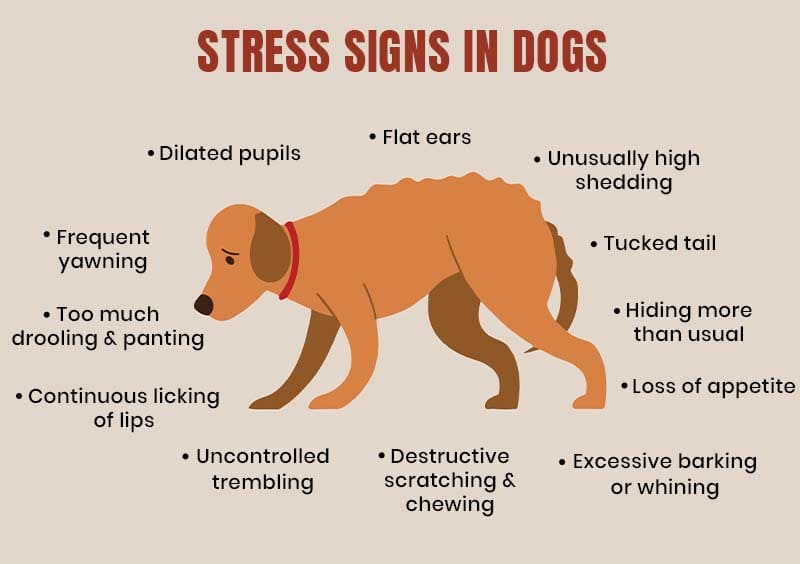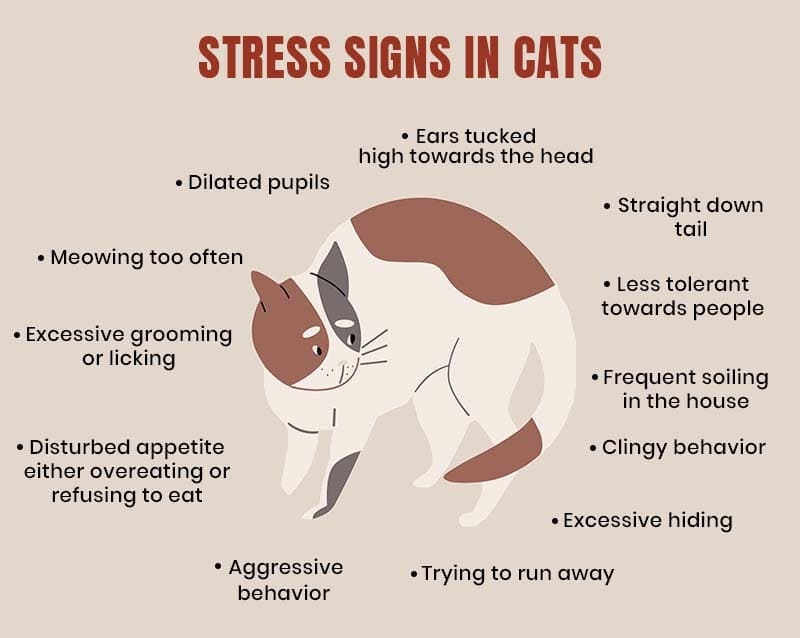
If you see your pet sitting idle in a corner of the house, showing lackluster behavior or unusual aggression, or you feel that their health is deteriorating, there are chances that your beloved furry buddy is going through stress. Astonished? Yes, pets can get stressed too just like us. And it is important to calm them and get them out of stressful situations for their health and happiness.
While your animal buddies may not be able to speak for themselves, their body language and behavior communicate about their state of mind, loud and clear, especially when they’re anxious. To assist you in this context, we have furnished a comprehensive article on pet anxiety explaining its symptoms, reasons, and methods to curb their unstable mental state. Read through to learn more.
Stress indicators
When your dog or cat is stressed, they may show one or more of the following signs:-
Stress signs in dogs

Stress signs in cats

What causes stress in pets?
Your otherwise chirpy furry friend can develop stress or anxiety due to multiple reasons. Here are some of the most common ones:-
1) Separation anxiety
What does your pet dislike the most? Staying alone or being in unfamiliar surroundings. You may have to keep them alone in the house for short durations due to a change in work schedule. The sudden absence of a family member due to moving to a different city for studies or the loss of a family member can also make them anxious. An adopted pet can get stressed when they first move to their new house away from the caretakers in their shelter home.
2) Fear
Just like humans, pets also feel stressed when frightened. Different types of situations can scare your pet and make them anxious.
- Fear of loud noises
The loud noises of thunderstorms, fireworks, and loud music can frighten your pet as they have more sensitive hearing senses than humans. - Fear of visiting a veterinarian
Regular vet visits are important to keep your pet in the best of their health. However, the majority of pets find the process of checkups and the environment of the clinic stressful. - Fear of traveling
Whether it’s a car trip, train travel, or a plane, traveling is usually not very exciting for every pet. Many times they will get anxious and experience stomach upsets and motion sickness. - Fear of unfamiliar surroundings
Pets do not like a lot of changes. Moving to a new house and living in an unfamiliar neighborhood surrounded by unknown people can stress them out. Even a lot of rearrangements in the house can irritate them.
3) Aging
With aging, your pet faces cognitive decline. Deteriorating memory and senses can create confusion and make your pet irritated, anxious, and stressed.
4) Emotional Sensitivity
Studies have shown that pets can sense the feelings of their caretakers. Your mental health can affect them. If you are having a hard time, your pet can get anxious too.
How to keep pets calm?
It is best to avoid situations that can be stressful for your pet as far as possible. However, the following are some of the ways to keep them calm in case of unavoidable circumstances:-
- Minimize the time for which your pet has to stay alone. Arrange for a friend’s visit during the hours of your absence. You can also keep your furball in a kennel during your work hours.
- Exercise is very important for keeping your pet in good health. Also, a tired pet is less likely to be bothered by your absence for a while and will settle easily.
- Make sure you keep the doors and curtains closed during thunderstorms and avoid taking your pet to fireworks displays to save them from the stress of loud noises. You can also use some natural anxiety relievers to keep them relaxed.
- Keep the vet visits a low-key affair. Be by your pet’s side throughout the checkup and comfort them.
- Surround your pet with familiar toys or a sweatshirt with your smell and keep them inside a crate while traveling to help them feel safe and cope with travel anxiety.
- When you are shifting to a new home, keep your pet in a separate room away from all the chaos. Provide them with a peaceful place to rest. Also, unpack your furry buddy’s things first at the new home so that they can get a feeling of familiarity.
- Spend enough time to cuddle and play with your senior furry pal. Keep them reassured that you are there for them all the time.
- Make sure you keep your mental health in check. Stay relaxed, do not let your stress escalate to your pet, and keep yourself and your pet happy.
In the end
Stress and anxiety are difficult to handle for both humans and their furry companions. Always be vigilant for the signs of stress in your four-legged friend, try to avoid stressful situations as far as you can, and do your best to help them deal with it.
